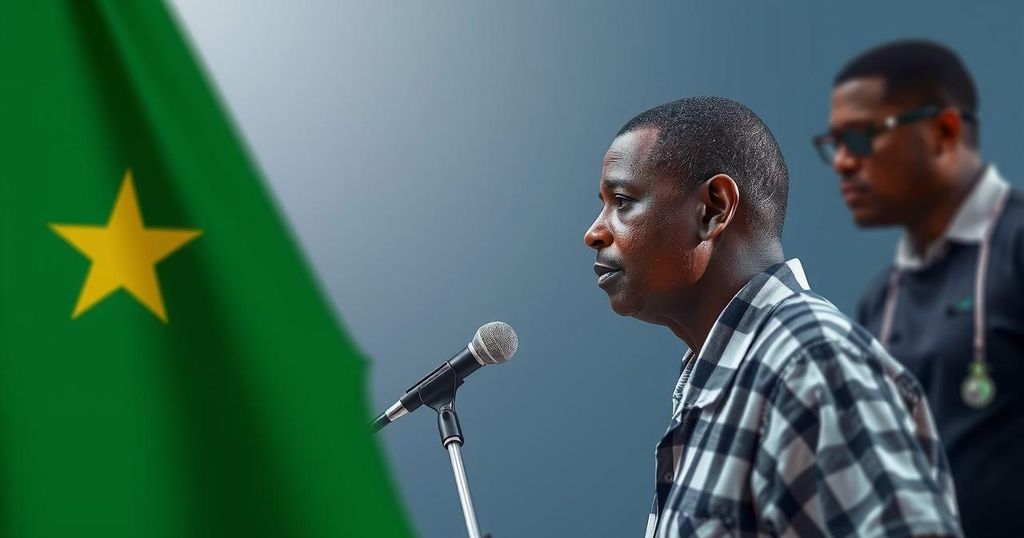The postponement of elections in South Sudan to December 2026 signifies a setback in the country’s political transition, frustrating its citizens as political paralysis continues. UN Special Representative Nicholas Haysom emphasizes the urgency for leaders to implement the Revitalized Peace Agreement to achieve democratic governance.
On Thursday, the United Nations Security Council was informed by Nicholas Haysom, the UN Special Representative for South Sudan, about the regrettable extension of the transitional period in South Sudan, which postpones critical elections that were originally set for next month. The new timetable delays the vote until December 2026 and extends the transition period to February 2027. Mr. Haysom expressed that this circumstance reflects the widespread frustration among the South Sudanese regarding their leaders’ inability to implement the peace agreement and transition to democracy. The ongoing political struggles in South Sudan have their roots in the civil war that erupted in 2013, following the country’s independence in 2011. Although a peace agreement was signed in 2018, significant obstacles remain. Mr. Haysom remains actively engaged with various local leaders and organizations, advocating for urgent compromises to reinvigorate the implementation of the Revitalized Peace Agreement, which has largely been stalled by political maneuvering. He warned that the newly extended timeline for electoral preparations must not lead to a repeat of past complacency, where actual governance milestones are sidelined. Notably, there is a clear call for accountability and action among the political elite and the international community. The UN Mission has earmarked six immediate benchmarks to help facilitate the electoral process, including the deployment of Necessary Unified Forces, civic education initiatives, and the preparation for voter registration. Collaborations with civil society organizations are underway to create polling monitoring networks and to promote civic engagement in the political process. Compounding the challenges in South Sudan are significant humanitarian needs stemming from local violence and ongoing flooding, which have disrupted recovery efforts. As humanitarian aid continues, it is crucial to recognize the complexities exacerbated by regional conflicts, such as the ongoing crisis in Sudan, which has led to a sharp increase in the number of refugees entering South Sudan. Mr. Haysom emphasized a concerted effort must be made to foster peace and democratic governance in South Sudan—an effort that is rooted in the aspirations of its citizens.
The recent developments in South Sudan underscore a chronic issue of political instability that has plagued the nation since its independence in 2011. The civil strife that began in 2013 led to devastating consequences, including mass displacement and humanitarian crises. The Revitalized Agreement of 2018 provided a framework for peace and elections, but progress has been slow, often hindered by political disputes among the leadership. As South Sudan prepares for its first elections subsequent to independence, international and local stakeholders highlight the importance of achieving sustainable governance and stability.
In conclusion, the delay of elections in South Sudan is a significant setback that reflects ongoing political inertia and the urgent need for effective leadership. The international community and South Sudanese leaders must prioritize immediate benchmarks to ensure that the next electoral cycle is characterized by legitimacy and inclusivity. If meaningful actions are not taken, South Sudan risks falling back into cycles of unrest and disappointment among its populace.
Original Source: www.miragenews.com






